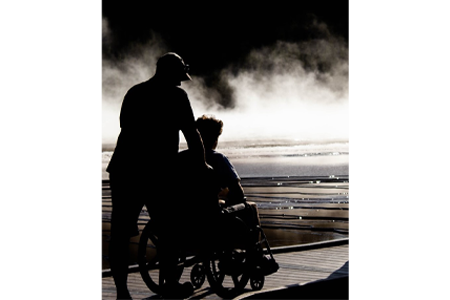
In New Jersey, courts can assign guardians to oversee adults who cannot care for or make decisions for themselves. Because adults are presumed to be legally competent, the court must first determine whether the person is incapacitated before it can grant legal authority to a guardian. Once incapacitation is established, that he or she becomes a protected person. A qualifying court-appointed guardian can then be put in place to assure that their health, safety, and welfare needs are met and that their rights are protected.
Protected Persons.
An person must be deemed incapacitated before they will be subjected to a guardianship. An “incapacitated individual” is generally described as someone who is incapable of making decisions independently. Notably, this does not mean that the person has a mere tendency to make poor decisions and will be deemed incapacitated. Examples of incapacitation include: mental illness or deficiency, physical illness or deficiency, chronic drug use or alcoholism, and developmental disability.
To establish that any of these conditions make the person incapacitated, various requirements must be met and forms must be submitted to the court. Those include evaluation and certification of the person’s condition by at least 2 doctors, as well as completion of forms outlining the case, the individual’s assets, and the reason why they need a guardian. Depending on the circumstances, however, special filings may be required.
Developmental Disabilities.
In cases involving individuals who are eligible for Division of Developmental Disabilities (DDD) benefits, a more specific process applies. To meet the DDD’s criteria for a developmental disability, the disabled person must have a chronic physical or intellectual disability that: began before age 22, is expected to be lifelong, and limits their ability to care for themselves. If the individual receives DDD benefits, then the DDD is required to evaluate their need for a guardian. In seeking guardianship for a developmentally disabled adult, the individual’s family may privately pursue a court-appointed guardianship or the DDD may facilitate the court action.
A Guardian’s Responsibilities.
The role of “guardian” comes with great responsibilities, including exercising rights on behalf of the incapacitated person, following court rules, and filing periodic reports. The court decides whether the guardianship will be “general” or “limited.” Under a general guardianship, the guardian is authorized to exercise all rights and powers on the incapacitated individual’s behalf. In a limited guardianship, the guardian’s role is less intrusive and the person under the guardianship can still make some decisions for himself or herself. Additionally, a guardian’s responsibilities may change depending on whether the guardian is to care for the person’s finances, well-being, or both. But regardless of the guardianship’s form, the guardian is required to involve the person in decision-making to the extent their abilities allow.
Continued Monitoring of Guardianship.
Once a court-appointed guardianship is implemented, the Guardianship Monitoring Program provides an ongoing relationship between the courts and guardians. This is a statewide volunteer program that monitors guardians in their handling of incapacitated individuals’ affairs. Friends and family of the incapacitated individual also have the right to check on the guardianship to see if the person is being treated fairly and properly and to check for the possibility of guardianship abuse, fraud or theft. They may request the court to review the individual’s financial records. Additionally, any party-in-interest to the guardianship (e.g., the guardian, the protected person, and their friends or family) may file applications to the court. Such applications cover requests for: modification of the guardianship protection, modification of reporting requirements, review of the guardian’s conduct, and review of the guardianship.
It is important to know that guardianship is a serious solution to a difficult situation. It is said to be a “solution of last resort” and one that should not be pursued lightly, as it removes an individual’s fundamental right of self-determination. Alternatives to guardianship, such as a power of attorney, may instead be sufficient and appropriate for the individual’s care. It is often beneficial to inquire into such alternatives in order to determine what solution would best serve the individual’s needs, as well as their family’s circumstances.
Claire Midili is a second-year law student at Seton Hall University School of Law, where she is an Associate Editor for the Law Review.

